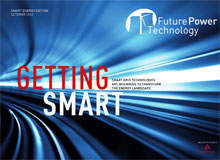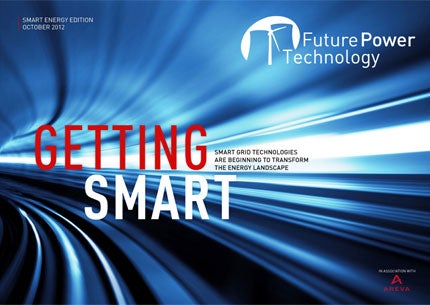
The implementation of smart grids has been heralded as a key step in the full integration of renewable energy sources. We find out to which extent the fate of clean energy is tied to the progress of improved distribution, smart metering and other smart grid features.
We also explore how pilot projects around the world are demonstrating how smart grids could work on a national level, and find out why the Middle Eastern market offers huge opportunity to investors and technology manufacturers.
Moreover, we investigate how the roll-out of smart metering has helped to reduce both energy theft and the cost of energy in Brazil and other Latin American countries, and we ask how far data collection through smart meters can go without becoming a threat to users’ privacy – and what regulation are in place to protect personal data.
To read this issue, click here.
In This Issue
Clean Energy’s Holy Grail
The implementation of smart grid technology has long been heralded as a key step in the full integration of renewable energy sources. Environmental groups and power companies are championing smart grids as the fastest route to an energy-efficient, low-carbon future. We find out the extent to which the fate of clean energy is tied to the progress of improved distribution, smart metering and other features promised by smart grid developers.
Click here to read more.
Smart Power and the Euro
The EU’s most recent energy directive aims to cut annual primary energy consumption by 20% before 2020, an ambitious task that will rely on the roll-out of smart grids in every partner nation. But can we really expect economies on the brink of collapse to honour these directives? In this special report we investigate what effect the current economic crises in the Eurozone will have on smart energy and the final adoption of a ‘Third Energy Efficiency Directive’ scheduled for September this year.
Click here to read more.
Pilots & Pioneers
Power companies across the globe are working with communities to create mini smart grid projects to demonstrate how larger smart grids could work on a national level in the future. We take a look at some of these pilot projects, including IssyGrid in the small French town of Issy-les Moulineaux, and PowerMatchingCity in Hoogkerk in the Netherlands, to find out if they are helping to improve the efficiency, reliability, economics and sustainability of the production of electricity.
Click here to read more.
An Oasis of Opportunity
The Middle East is one of the biggest developers of new smart grid technology, without which the region’s vast solar and renewable energy potential could not be exploited. We ask policy-makers and industry experts what needs to be done to pave the way for the mushrooming Arabian smart grid industry, which is trying to manage growing demand, reduce carbon emissions and cut down on electricity system losses.
Click here to read more.
A Smart Solution
Energy theft in South America is rife, but the modernisation of infrastructure and the roll-out of smart metering are expected to tackle the issue. We speak to Elster about the problem of energy theft in Brazil and other Latin American countries and find out how the successful deployment of over 20,000 metering endpoints in Brazil has contributed to as significant decrease in both theft and the cost of energy in Rio’s communities.
Click here to read more.
The Data Issue
The European Date Protection Supervisor has warned that smart meters are a threat to users’ privacy as the technology will enable a collection of personal data which can track what residents do in their own homes. Future Power Technology investigates this theory and asks what regulations are in place to protect personal data.
Click here to read more.
Next issue: Cleaning Up
How do we know how effective our attempts to reduce emissions really are? While few debate the need to reduce emissions from energy generation, many disagree on the methods used for measurement. We find out from experts at the UK National Physical Laboratory’s Centre for Carbon Measurement what it takes to measure carbon accurately and consistently.
We also look into Australia and China’s new alliance for the development of emissions reduction technologies for fossil fuel plants and investigate the latest research on the feasibility of large-scale carbon capture and storage, as well as profiling two plants that are being equipped with CCS capability: the retrofitted Boundary Dam coal-fired plant in Canada, and Australia’s Hazelwood station.
Moreover, we ask how the industry can encourage private sector investment, from carbon trading to green power auctions, and find out how fuel cells could enable more clean power generation off the grid.
Sign up for your free subscription to get future issues delivered directly to your inbox.
Digital magazine FAQ
The online magazine is viewable on any computer with Flash Player installed. It is also viewable on mobile devices, iPhones and iPads although some features and videos will be disabled.
View the archive of all previous issues.




